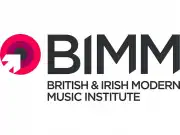Higher education in the United Kingdom for international students
- Briefly about the United Kingdom: universities, bachelor's and master's programs
- Education system in the United Kingdom
- Features of education in the United Kingdom
- Advantages of education in the United Kingdom
- Disadvantages of education in the United Kingdom
- How to choose a university in the United Kingdom
- Documents for admission to the United Kingdom
- Preparatory programs in the United Kingdom
- Bachelor's programs in the United Kingdom
- Master's programs in the United Kingdom
- Doctoral programs in the United Kingdom
- Student visa for the United Kingdom
- Tuition fee in the United Kingdom for international students
- Scholarships in the United Kingdom for international students
- Job search after studying in the United Kingdom
- Recognition of UK diplomas abroad
- Immigration through education in the United Kingdom
- Frequently asked questions

Master of Law - Legal Practice
Oxford Brookes UniversityGraduates from England and Wales or those with a common law background can transform their professional law diploma into a master's degree by pursuing our LLM in Legal Practice. These include the PG Dip in Legal Practice, LPC (Legal Practice Course), and BPTC, as examples (Bar Professional Training…

Master of Arts - Publishing
Oxford Brookes UniversityPublishing is a flexible learning program that involves distance learning. While learning at home, it will give you the abilities and information required for a successful career in publishing.
This course closely matches the established MA publishing degrees offered on our campus. It was…

Postgraduate Diploma - Social, Emotional and Mental Health Difficulties
Oxford Brookes UniversityYou will study the course online over 2 years part time. Learning is rigorous, participatory, and concentrated on the specifics of providing children and young people with SEMH needs with appropriate support.
You'll conduct critical analyses of strategies, regulations, and recommendations…

Certificate - Songwriting
BIMM - British & Irish Modern Music InstituteThe songwriting pathway gives you a thorough understanding of every aspect of song composition by fusing fundamental songwriting techniques with music theory.
Working together is a big part of the course. You will work together with gifted kids who have a wide range of interests and backgrounds.…

Bachelor of Science (Hons) - Business Administration (Management)
European School of EconomicsThe Bachelor of Science (Hons) company Administration degree prepares global company executives, managers, and decision-makers. Innovation, creativity, and leadership are stressed in the curriculum, making self-awareness of professional skills difficult.
A unique blend of core topics, language…

Bachelor of Science (Hons) - Business Administration (Marketing)
European School of EconomicsProactive decision-makers, managers, and leaders are sought after in a wide variety of business sectors around the world, and this is what the Bachelor of Science (Hons) in Business Administration degree is all about. The curriculum's focus on innovation, creativity, and leadership makes for a rich…

Bachelor of Science (Hons) - Business Administration (Finance)
European School of EconomicsStudents can become excellent leaders and managers in many industries with a Bachelor of Science (Hons) in Business Administration degree. The curriculum's emphasis on creativity, initiative, and leadership makes understanding one's unique skills and how they apply in the workplace rich and challenging.
This…

Bachelor of Science (Hons) - Business Administration (Media and Communications)
European School of EconomicsModern media and communication expertise are crucial to the success of today's multinational corporations as the value of social media continues to climb and more and more business is conducted online.
The Media and Communications Management track of the Bachelor of Science (Honors) in Business…

Bachelor of Science (Hons) - Business Administration (Sports Management)
European School of EconomicsThere are several social functions that sporting events fulfill, including bonding citizens and bringing the entire nation together. The BSc (Hons) in Business Administration with a specialization in Sports Management aims to produce responsible visionary leaders in the Sports Industry who will ultimately…

Bachelor of Science (Hons) - Global Political Science
European School of EconomicsThree pathways—one in diplomacy, one in leadership, and one in trade—are available for the three-year, full-time Bachelor of Science in Global Political Science (BSc Hons). With a typical 360 UK/180 ECTS credit structure, all ESE undergraduate bachelor's degree programs are taught in English and may…
Briefly about the United Kingdom: universities, bachelor's and master's programs
The United Kingdom has traditionally been among the world leaders in the quality of higher education. The country's universities consistently rank high in international rankings such as QS, THE, and ARWU. Over 600,000 international students from 180 countries study here, making the UK one of the most popular destinations for international education.
Universities in the United Kingdom offer thousands of educational programs in English, ranging from bachelor's degrees to master's and doctoral programs. Among the leading institutions are the University of Oxford, University of Cambridge, Imperial College London, University College London, and the London School of Economics. In addition to academic reputation, universities have strong ties with industries and research centers, providing graduates with competitive advantages.
Studying in the UK is not only about academic knowledge but also an opportunity to develop intercultural communication, leadership skills, and creative thinking. Most students also note the high level of safety, developed infrastructure, and access to cultural events, making their stay in the country comfortable and enriching.
Education system in the United Kingdom
| Level of education | Age | Duration | Features |
|---|---|---|---|
| GCSE / A-Levels / IB | 14-18 | 2-4 years | Pre-university preparation, in-depth study of specialized subjects |
| Foundation | 17+ | 1 year | Preparation of international students for bachelor's programs |
| Bachelor's (Bachelor's) | 18+ | 3-4 years | Specialization from the first year, possible internships |
| Master's (Master's) | 21+ | 1-2 years | Academic or applied focus |
| Doctorate (PhD) | 23+ | 3-5 years | Independent research under scientific supervision |
Features of education in the United Kingdom
- Focus on specialization from the first year: UK universities do not require studying general education subjects, as in other countries.
- Individual approach: the "tutorials" and "supervisions" system allows one-on-one work with teachers.
- Flexible academic paths: the ability to choose modules and interdisciplinary courses.
- Advanced assessment system: regular essays, projects, and research instead of exams only.
- Career support: career centers, job fairs, employment consultations.
- Academic freedom: students can independently shape research directions.
- Opportunities for internships and practical training: especially in technical and economic fields.
Advantages of education in the United Kingdom
- Worldwide recognition of diplomas
- Shorter study durations (3 years for bachelor's, 1 year for master's)
- Access to cutting-edge scientific developments and research
- High academic reputation of universities
- Extensive campus network and modern technical facilities
- Opportunity to work while studying (up to 20 hours per week)
- Developed international student environment
- Transparent academic requirements and clear knowledge assessment system
Disadvantages of education in the United Kingdom
- High tuition fee and living costs, especially in London
- Visa requirements and proof of financial solvency
- Intensive study pace, which requires high motivation and stress tolerance
- Not all specializations are available without prior preparation (e.g., medicine, law)
- Limited scholarships and high competition for funding
How to choose a university in the United Kingdom
- Define your study goals – academic career, practice-oriented learning, or subsequent immigration.
- Compare university rankings by specific discipline, not just overall rankings.
- Check program accreditations, especially if you plan to work in your field in another country.
- Study the learning format – lecture-based or project-based, on-campus or distance learning.
- Clarify admission requirements, including academic performance and English proficiency.
- Evaluate the university's location – major city, provincial campus, or industry specialization.
- Check for scholarships, grants, and accommodation options, especially for international students.
- Look into internship and employment opportunities for graduates.
- Read reviews from students and alumni, particularly international ones.
- Contact the university for specific questions.
Documents for admission to the United Kingdom
- School certificate or diploma with grade transcripts
- Proof of English proficiency: IELTS Academic, TOEFL iBT, Duolingo (depending on requirements)
- Motivation letter (Personal Statement)
- Recommendation letters (usually 2)
- Resume (CV) – for master's and doctoral programs
- Portfolio – for creative specializations
- Passport with sufficient validity
- Application via UCAS (for bachelor's programs)
- Translation of all documents, except passport – into English with notarization
Preparatory programs in the United Kingdom
| Program name | Duration | Target audience | Features | Average tuition fee |
|---|---|---|---|---|
| Foundation | 1 year | Graduates with 11 years of schooling | Preparation for bachelor's programs, adaptation | £12,000 – £22,000 |
| International Year One | 1 year | Students with strong academic records | Direct preparation for the second year of bachelor's | £14,000 – £20,000 |
| Pre-Master's | 3–12 months | Bachelor's graduates | Preparation for master's programs | £10,000 – £18,000 |
| Pre-sessional English | 6–12 weeks | Any level | Language preparation before the main program | £1,500 – £4,000 |
Bachelor's programs in the United Kingdom
- Duration: 3 years (4 years – in Scotland or with a placement year)
- Degrees: BA, BSc, BEng, LLB, etc.
- Popular fields: economics, law, engineering, arts, psychology, IT
- Language of instruction: English
- Average tuition fee: £12,000 – £25,000 per year (up to £38,000 for medicine)
- Features: specialized learning from the first year, possible sandwich-year with internships, project work
Master's programs in the United Kingdom
- Duration: 1–2 years
- Degrees: MA, MSc, MBA, LLM, MRes
- Popular fields: finance, management, law, international relations, biotechnology, journalism
- Language of instruction: English
- Average tuition fee: £13,000 – £30,000 per year (up to £45,000 for MBA)
- Features: focus on research, applied skills, participation in scientific projects and internships
Doctoral programs in the United Kingdom
- Duration: 3–5 years
- Degrees: PhD, DPhil
- Popular fields: engineering, medicine, biology, philosophy, computer science, economics
- Language of instruction: English
- Average tuition fee: £15,000 – £24,000 per year (up to £35,000 for technical and medical fields)
- Features: work on individual research, publications, participation in international conferences, teaching undergraduate courses
Student visa for the United Kingdom
- Visa type: Student visa (formerly Tier 4)
- Benefits: right to study, opportunity to work up to 20 hours per week, participation in internships
- Required documents:
- CAS (Confirmation of Acceptance for Studies) from the educational institution
- Proof of English proficiency
- Proof of financial solvency
- Passport with sufficient validity
- Health insurance (IHS – Immigration Health Surcharge)
- Processing time: 3–6 weeks
- Visa validity: for the entire study period + a few months after course completion
- Features: possibility of extension within the country, transition to Graduate visa
Tuition fee in the United Kingdom for international students
- Preparatory programs: £10,000 – £20,000
- Bachelor's programs: £12,000 – £25,000 (up to £38,000 for medicine)
- Master's programs: £13,000 – £30,000 (up to £45,000 for MBA)
- Doctoral programs: £15,000 – £24,000
- Accommodation and meals: from £9,000 to £15,000 per year
- Additional expenses: textbooks, transportation, visa fees, health insurance
Scholarships in the United Kingdom for international students
Scholarships are provided by universities, charitable foundations, regional authorities, and private companies.
- Selection criteria: academic performance, motivation, research achievements, social status
- Amounts: from partial to full coverage of tuition fee and living expenses
- How to apply: via the university's website or when submitting admission documents
- Application deadlines: from 6 to 12 months before the start of studies
- Features: high competition, need for a strong motivation letter and recommendations
Job search after studying in the United Kingdom
- During studies: up to 20 hours per week during term time and full-time during holidays
- Graduate visa: allows working in the UK for 2 years after graduation (3 years for PhD)
- In-demand fields: IT, finance, engineering, medicine, education, logistics
- Salary levels: £20,000 – £30,000 for graduates; higher in London and southeastern England
- Best cities for careers: London, Manchester, Birmingham, Bristol, Edinburgh
- University support: career centers, internships, partnership programs with companies
Recognition of UK diplomas abroad
Diplomas from UK universities are recognized worldwide. Graduates from Oxford, Cambridge, LSE, UCL, and Imperial College are particularly highly valued. UK education complies with the Bologna Process, facilitating diploma recognition in Europe and other countries. However, in some cases, nostrification or qualification confirmation in the home country may be required.
Immigration through education in the United Kingdom
- Graduate visa: 2 years to find and work (3 years for PhD)
- Skilled Worker visa: after a job offer from a licensed employer
- Advantages: opportunity to build a career and stay in the country
Conclusion: Education in the United Kingdom is an effective path to immigration but requires high academic preparation and strategic planning.
Frequently asked questions
1. Is proof of English proficiency required for admission to UK universities?
Yes, almost all universities require proof of English proficiency. Typically, IELTS Academic, TOEFL iBT, or Duolingo certificates are accepted.
2. Can I enter a UK university after 11 years of schooling?
Yes, but most often through a Foundation program, as the UK school system requires 13 years of education.
3. Can I work on a student visa while studying in the UK?
Yes, a student visa allows working up to 20 hours per week during term time and full-time during holidays.
4. What visa is needed to study in the UK?
You need a Student visa (formerly Tier 4). It can only be obtained after receiving a CAS from the university and proving financial solvency.
5. Are UK diplomas recognized in Russia and other CIS countries?
Yes, diplomas are recognized, but in some cases, diploma confirmation or qualification exams may be required.